Wolf ending explained: Who was the Donkey Pitch killer in the intensely chilling BBC drama?
The Wolf ending delivered some disturbing scenes and shocking revelations as it built to an emotionally-charged conclusion
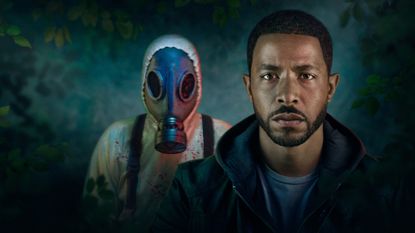

The Wolf ending wrapped up this intense BBC drama with some seriously high-octane moments as DI Jack Caffery ended up working three cases at once.
Based on the late Mo Hayder’s 2014 novel, the BBC crime drama focuses on DI Jack Caffery as he races to solve one crime, re-examine the Donkey Pitch killer case and find out what happened to his brother. Whilst Wolf does require a little suspension of disbelief at points, the six part series strikes a very watchable balance between emotional scenes, grisly horror-esque elements and very dark humour. It stars Annika’s Ukweli Roach, Juliet Stevenson and Iwan Rheon from The Light in the Hall.
With three different timeframes for the crimes, some people might want to know more about the Wolf ending now it’s on BBC iPlayer ahead of it airing on TV. Here we explain the Wolf ending, including who the Donkey Pitch killer really is and what we know about what happened to Caffery’s brother in the BBC drama…
*Warning: Spoilers and sensitive storylines explained ahead*

Wolf ending explained: Who is the Donkey Pitch Killer?
Building across the five episodes in the lead-up to the Wolf ending, fans had been left horrified by the fate of the Anchor-Ferrers. The wealthy family had arrived back at their Monmouthshire home and were spooked by things that seemed to link back to the Donkey Pitch killings years before. They received a knock at the door from DS Honey and DS Molina, but the two men were revealed not to be police officers at all.
Instead, they began holding Oliver, Matilda and their daughter Lucia hostage. Meanwhile, DI Caffery started off on the trail of the Anchor-Ferrers’ dog who’d been discovered with a note begging for help in her collar. From there he’d also started to re-examine the Donkey Pitch killer case, where two people, Sophie and Hugo, were killed years earlier.
Asking questions in the Wolf ending, Caffery unearthed that Hugo had been sleeping with Lucia Anchor-Ferrers behind Sophie’s back. When she’d turned up one night, he had started being mean to her, hoping it would make Lucia leave. They took things too far, immediately raising Caffery’s suspicions that she could’ve acted against them in revenge.
Sign up for the woman&home newsletter
Sign up to our free daily email for the latest royal and entertainment news, interesting opinion, expert advice on styling and beauty trends, and no-nonsense guides to the health and wellness questions you want answered.
Meanwhile, narration from Lucia’s father Oliver revealed that she’d started exhibiting worrying behaviour as a child, including killing a cat on camera. Caffery realised that Lucia was one half of the Donkey Pitch killer on the way to the Anchor-Ferrers house whilst Lucia and one of the men, Molina, were seen getting passionate with each other after her father Oliver died.
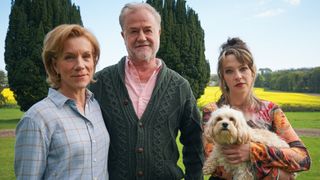
Caffery arrived and the door was answered by Molina introducing himself as "Kiernan Anchor-Ferrers". The detective was invited in and subtly questioned Molina about Sophie and Hugo and Lucia. Discussing the Donkey Pitch killer Caffery then admitted out loud, “It feels like there had to have been two.”
Things then escalated rapidly and Molina took a huge knife off the magnetic knife block on the wall of the kitchen and went to attack the DI. Only Caffery was anticipating it and kicked his legs so Molina fell to the ground and after a violent fight, he strangled the criminal. Caffery then went upstairs and found Lucia balanced on the Juliet balcony outside the window.
He told her that Molina was dead and added, “You don’t want this to be over do you?”
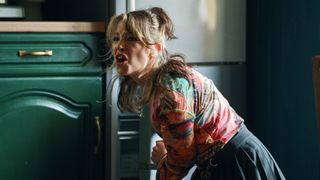
It was then that the detective laid out all of his deductions, including that Molina and Lucia had been in a relationship. Caffery stated that Lucia and Molina had relished terrifying their victims and had done this to Sophie and Hugo.
Lucia asserted that she used to believe “someone would save” her as she was so miserable. No-one ever helped her and eventually she came to the realisation that “nobody saves you if you don’t deserve it” so she “leaned into” her behaviour.
Claiming that Caffery was “pathetic” for thinking she’d ever jump from the balcony, Lucia then appeared to genuinely slip and fall. The detective was then seen reading a piece of paper he’d taken off Oliver as the narration read out the admission that he’d witnessed his daughter leaving the house on the night the Donkey Pitch Murders were committed and that she’d had no alibi.
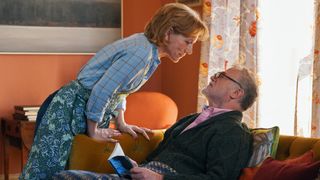
Oliver had never told the police or his wife and said he had “no excuse” for why he didn’t. Caffery then headed up to the roof where he found Lucia’s mother Matilda Anchor-Ferrers trying to escape and eventually managed to convince her it was all over at last. In the next scene, Caffery met with Sophie’s grandfather and gave him two options - to tell him what he’d found out about what happened and what he did, even if the man wouldn’t like it, or to tell him nothing. Her grandfather checked that the person who hurt Sophie would never do the same to anyone else and then said that the rest didn’t really matter.
What happened to Jack Caffery’s brother?
The detective had been convinced throughout Wolf that his parents' neighbour was responsible for the death of his brother Ewan. Ewan went missing in the 1990s and had never been found, though Jack believed the neighbour Ivan Penderecki had been taunting him with children's toys on the lawn to let him know it was him.
In the closing stages of the Wolf ending, Caffery went to see the Walking Man who’d set him off on the quest that led to the discovery of who killed Sophie and Hugo. He told him that as he’d done what he’d asked, he should be told all the Walking Man knows about what happened to his brother.
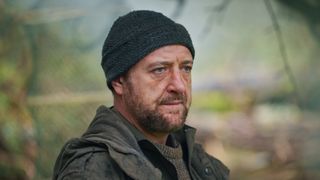
It was then that it was revealed that Ivan Penderecki had been stalking Caffery’s brother Ewan before he abducted him. Apparently a plan had been envisioned which involved kidnapping Ewan as he walked back from school. Except that when Caffery and Ewan had fought in the treehouse, it provided another opportunity.
The Walking Man tried to somewhat reassure Caffery and assuage his guilt by telling him that it “would’ve happened, no matter what”, even if the brothers hadn’t fought. Caffery maintained that he should have known that his memory of seeing Ivan in the house was real and not a nightmare and that he should’ve told his parents.
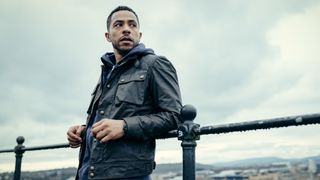
The Walking Man asked him how old he was and when Caffery replied “eight”, the Walking Man gently tried to get him to remember how young that really is. Fans then saw Caffery return to the home where it happened and began dismantling the treehouse by hand, overwhelmed by anger, pain and guilt.
Back at the police station it was revealed that a toy with Ewan’s fingerprints on it wasn’t even made until years after they thought he had died. The Wolf ending then drew to a heart-breaking close with the image of Caffery watching in tears as he burned the tree house, perhaps leaving the door ajar for a possible Wolf season 2 that might finally see Caffery get more answers and justice for Ewan.
All episodes of Wolf are available to watch now via BBC iPlayer and airs on Mondays and Tuesdays at 9pm on BBC One.
Emma is a Royal Editor with eight years experience working in publishing. Her specialist areas include the British Royal Family, ranging from protocol to outfits. Alongside putting her royal knowledge to good use, Emma knows all there is to know about the latest TV shows on the BBC, ITV and more. When she’s not writing about the next unmissable show to add to your to-watch list or delving into royal protocol, Emma enjoys cooking, long walks and watching yet more crime dramas!
-
 Zara Tindall elevates monochrome black outfit with dreamiest suede trench coat and pop of leopard print
Zara Tindall elevates monochrome black outfit with dreamiest suede trench coat and pop of leopard printZara Tindall's suede coat is a flattering winter staple we'll be wearing all season long
By Charlie Elizabeth Culverhouse Published
-
 Even if you're a 'sprout sceptic' you have to admit Trinny Woodall's creative trees are fabulous
Even if you're a 'sprout sceptic' you have to admit Trinny Woodall's creative trees are fabulousLove them or loath them there's no denying that sprouts make a fun festive addition to Christmas tablescapes
By Tamara Kelly Published